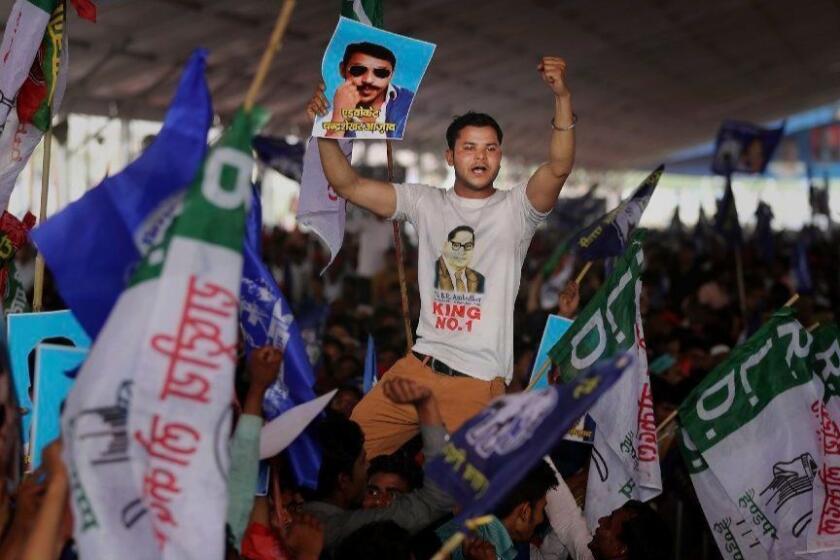California sues Cisco alleging discrimination based on India’s caste system

- Share via
California regulators have sued Cisco Systems, saying that an engineer faced discrimination at the company’s Silicon Valley headquarters because he is a Dalit Indian.
Dalits, once called “untouchables,” have long been at the bottom of India’s social hierarchy, considered so inferior that technically they are outside India’s ancient caste system. Inequities and violence against Dalits have persisted for decades after India banned caste discrimination.
The engineer worked on a team at Cisco’s San Jose headquarters with Indians who all immigrated to the U.S. as adults, and the rest of whom were of high caste, according to the lawsuit filed Tuesday by the California Department of Fair Employment and Housing.
The “higher caste supervisors and co-workers imported the discriminatory system’s practices into their team and Cisco’s workplace,” the lawsuit says.
It says Cisco’s treatment of the employee, who is not named, violated the Civil Rights Act of 1964 and California’s Fair Employment and Housing Act.
The Civil Rights Act bans employment discrimination based on race, color, religion, sex and national origin. The lawsuit notes that the employee is Dalit Indian and that he has a darker complexion than non-Dalit Indians.
In 2014, Mukesh Kumar, like much of India’s underclass, had pinned his hopes on Narendra Modi, who became prime minister after his party won elections in a landslide.
“It is unacceptable for workplace conditions and opportunities to be determined by a hereditary social status determined by birth,” said Kevin Kish, director of the fair-employment department.
Two men who were Cisco supervisors and higher-caste Indians, Sundar Iyer and Ramana Kompella, are named in the suit for discriminating against and harassing the employee. The employee received less pay and fewer opportunities, and when he opposed “unlawful practices, contrary to the traditional order between the Dalit and higher castes, [the] defendants retaliated against him,” the lawsuit says.
Cisco did not take steps to prevent this discrimination, the suit says.
The suit alleges that Iyer told other workers the employee was Dalit and had gained entry into the prestigious Indian Institute of Technology through affirmative action. The employee contacted Cisco human relations, intending to file a discrimination complaint against Iyer, who then took away the employee’s responsibilities and made other changes that reduced his role and made him feel isolated from his coworkers.
A survey of 67 workers highlighted the issues faced by people of color, women and LGBTQ people in the tech industry.
The suit says Iyer disparaged the employee to coworkers and said they should avoid him.
After Iyer stepped down, Kompella replaced him. The suit says Kompella “continued to discriminate, harass, and retaliate” against the employee, including by “giving him assignments that were impossible to complete under the circumstances.”
The lawsuit says Cisco investigated and did not “substantiate any caste-based or related discrimination or retaliation” against the employee.
Cisco Systems said in a statement that it is committed to an inclusive workplace.
It said it has “robust processes to report and investigate concerns raised by employees,” which it followed in this case, and that it is in compliance with all laws and its own policies. The company said it would contest the allegations in the complaint.
Cisco spokeswoman Helen Saunders declined to say whether Iyer and Kompella were still at Cisco, referring a reporter to LinkedIn.
More to Read
Inside the business of entertainment
The Wide Shot brings you news, analysis and insights on everything from streaming wars to production — and what it all means for the future.
You may occasionally receive promotional content from the Los Angeles Times.











